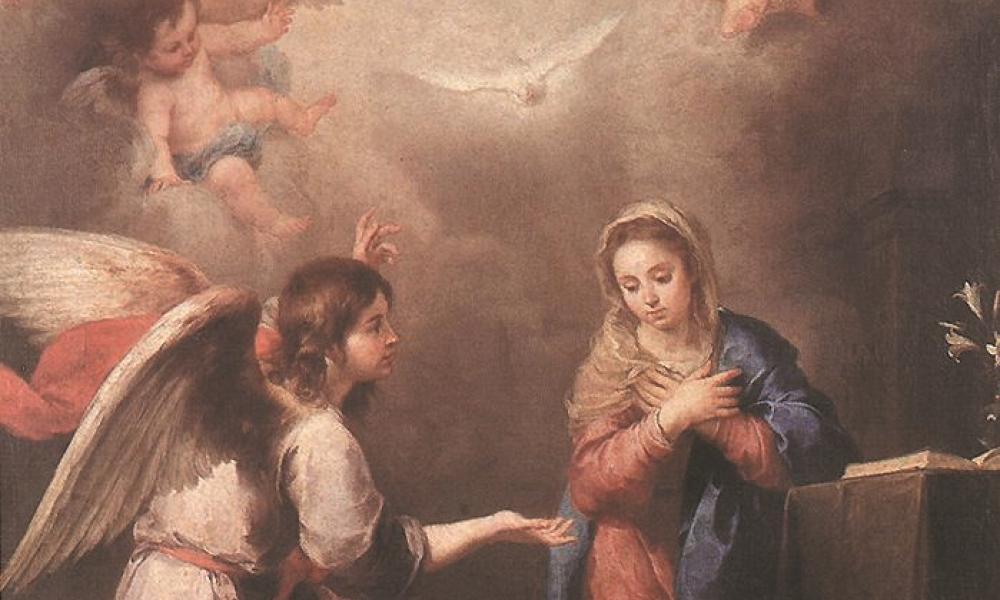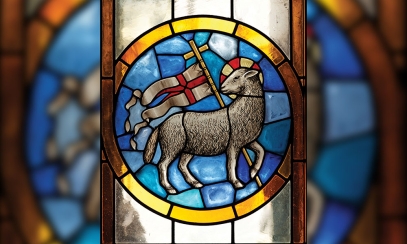
The Creed Part 7: What Do We Believe About the Holy Spirit?
I believe in the Holy Spirit …
Some say the Holy Spirit is the forgotten Person of the Holy Trinity. The more I think about it, especially reflecting upon some of the nudging of the Holy Spirit in our lives, I don’t think that is exactly the situation. Perhaps the real situation is that there is so much to say about the Holy Spirit, we don’t know how to put it into words.
How does “spirit” help explain the “Holy Spirit”?
The word “spirit” is a translation of the Hebrew word for “breath,” “air,” or “wind.” We need air, we need to breathe – suggesting the vital role the Holy Spirit plays in our lives. The Holy Spirit is life-giving, life-sustaining, fresh, creative, mysterious, unpredictable and uncontainable. The Holy Spirit is the Giver of Life, the breath of God’s life, as essential as air for our physical life.
The Church uses several titles to remind the followers of Jesus of the identity and work of the Spirit:
Advocate (John 14:16): one who speaks on our behalf, defends us, comforts and consoles us
Spirit of truth (John 14:17): one who communicates God’s truth, inspires the Scriptures and guides our faith journey
Spirit of glory (1 Pet 4:14): one who urges us on to the glory God has in store for us
How do we know the Holy Spirit’s presence in our world?
We need only look for that which is true, beautiful, good, and honorable in creation, ourselves and others. Every good deed ever done, every kindness ever offered, every moment of compassion, every hand held out in friendship, every act of justice, every work of peace is a visible sign of the Spirit acting in our world.
Perhaps it is best to sum the Spirit’s presence up into two main categories. We encounter the Spirit in human relationships. Our prayer expresses, “Come Holy Spirit, fill the hearts of your faithful, and kindle in them the fire of your love.” Secondly, we encounter the Holy Spirit in the building up of God’s kingdom in the world. Our prayer continues, “Send forth your Spirit and they shall be created; and you shall renew the face of the earth.”
How is the Holy Spirit in our lives?
Throughout the Church’s history, the Holy Spirit is presented in many ways – fire, tongues of fire, anointing, the laying on of hands, the finger of God, wind, dove, water, cloud and light – to answer that question. Perhaps an analogy might remind us of the Holy Spirit’s work through us. The work of the Spirit is like a child sitting on a parent’s lap blowing out birthday candles. The parent blows gently while the young child blows. The parent doesn’t blow until the child blows. They are working together.
The Spirit has given us the gifts and will work through us and with us, but we have to do our part – to use the gifts and build the kingdom of God. Each person has been given gifts for a unique purpose and has a responsibility to cooperate with the work of the Holy Spirit. Some ask the question, “Have you received the Holy Spirit?” Perhaps the question is, “Does the Holy Spirit have you?”
The fruits of the Holy Spirit show the effects of His gifts to us. Just as a tree produces fruit when properly nourished, people who utilize the Holy Spirit’s gifts show concrete evidence of His presence.
1. Kindness – the strength of Christ’s love which leads us to a greater service of one another
2. Joy – the ability to celebrate life even in the midst of pain and confusion
3. Peace – quiet, inner confidence in God’s care of my life
4. Patience – perseverance to handle frustration and conflict without becoming unduly edgy or annoyed
5. Goodness and Generosity – a real desire to live a holy life, to set a good example by my conduct wherever I am
6. Long-Suffering (positive attitude) – being able to put up with the injuries, slights and outrages of life
7. Humility – an openness to the truth of who I am and an awareness of the holiness of God
8. Faith/Fidelity – the ability to stay firm in my commitment to God and to God’s people
9. Modesty – loving God, my neighbor and myself in my physical appearance and demeanor
10. Self-Control – learning to discipline my time, energy and desires to reflect my spiritual values and priorities
11. Chastity – able to form loving and caring friendships, which help us to act appropriately with our gift of sexuality
12. Love – quick to sense the needs of the people and then responding as Jesus would
7 Ways the Holy Spirit is present in the Church
The Catechism of the Catholic Church sets out seven ways in which the Holy Spirit provides us with an experience of God’s presence. (cf. CCC 688)
1. When we pray and study the Scriptures which the Spirit inspired.
2. When we read the lives of the saints, their teachings and witness, we can be motivated to holiness by their example which was shaped by the Spirit.
3. When we assent with obedience to the teachings of the Magisterium, we are guided by the Spirit.
4. When we actively participate in the liturgies and sacraments of the Church, we enter into a unique situation where the Spirit opens us to experience God, especially in the Eucharist.
5. When we give ourselves to prayer, whether that be the Liturgy of the Hours or the rosary or meditation, we join the Holy Spirit who prays with us and intercedes for us.
6. When we offer ourselves to the various apostolates of the Church, we have the Spirit providing us with the confidence and energy we need.
7. When we dwell on the great Tradition of the Church, we sense the Spirit’s sustaining power through it all.
7 Gifts of the Holy Spirit
Wisdom – the ability to get the “whole picture.” This gift helps us see the world through God’s eyes. It helps us to remember that people are more important than things. We become aware through the gift of wisdom of God’s grace and presence. (Wis 7:14; Sir 1:23;14:20-27; Prov 2:1-6)
Understanding – the ability to see from the “heart,” to put the feelings of others before our own. Understanding involves loving others just as they are and caring for the people no one else notices. (Wis 3:9; Prov 24:3)
Knowledge – the gift of objectivity, of seeing the world and things around us as they really are, rather than as we would like them to be. Knowledge helps us to discover new and creative ways to meet needs. (Prov 19:27;24:3-5)
Fortitude (Courage) – the ability to follow our convictions and conscience no matter what the cost. Courage gives us the strength to do what is right in spite of obstacles and difficulties. This gift frees us to live firmly by faith instead of by fear. It helps Christians choose consistently the right way to live in spite of disappointments and difficulties. (Ps118:6, 13-14; Phil 1:12-14)
Counsel – the gift of right judgment, the ability to make good decisions after looking at the alternatives and considering the consequences. The gift of counsel reaches us through the Holy Spirit in the sacrament of reconciliation. At other times the gift of counsel reaches us through other Christians who are ready to listen to our problems and help us. (Sir 19:18, 32:16-19, 37:7-15; Prov 15:22)
Piety (Reverence) – to reverence and praise God in our worship and prayer life. It also helps us see God’s holiness reflected in other people and in nature. (Ps 118:23-24, 29; Sir 42:15-25, 43)
Wonder and Awe in God’s Presence (Fear of the Lord) – to be awake to the realization that we are always in God’s presence. The gift of wonder and awe tells us that God created the beauty of the universe but also listens to us, cares for us, and loves us beyond all measure. (Isa 29:23; Sir 32:13, 43:28-35)



